When starting a new job, it can be hard to know what exactly to wear unless you’re given a strict dress code. It might be unclear how casual you’re allowed to dress, so the safest way to choose your outfits is to base them off what your co-workers are wearing. If sneakers and jeans are the unspoken uniform of the office, you might as well follow suit, at least in the beginning. And if everyone else is wearing a crop top that reveals their stomach, it is safe to assume that you can wear that too. Unless, of course, your manager has a ridiculous double standard for plus size people.
One woman, Abigayle Canterbury, recently shared on TikTok that she quit her new job after dealing with a fatphobic manager. Her videos have sparked a conversation online about discrimination in the workplace, so below, you can read her whole explanation, as well as an interview between Abigayle and Bored Panda and some of the replies her videos have received. Let us know how you feel about this situation in the comments, and then if you are looking for another piece bringing fatphobia to light, we’ve got the perfect one to read next right here.
TikToker Abigayle Canterbury recently quit her job after realizing that only thin employees don’t have to abide by a dress code

Image credits: abigaylecanterbury
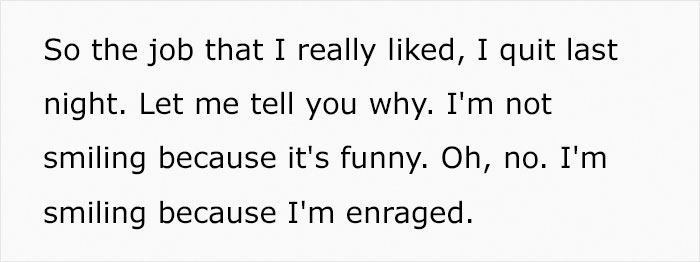
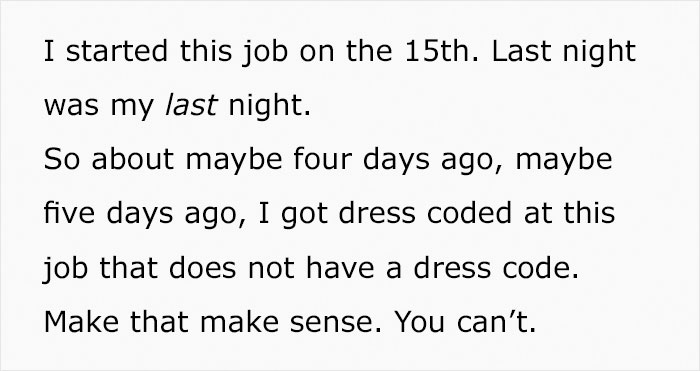

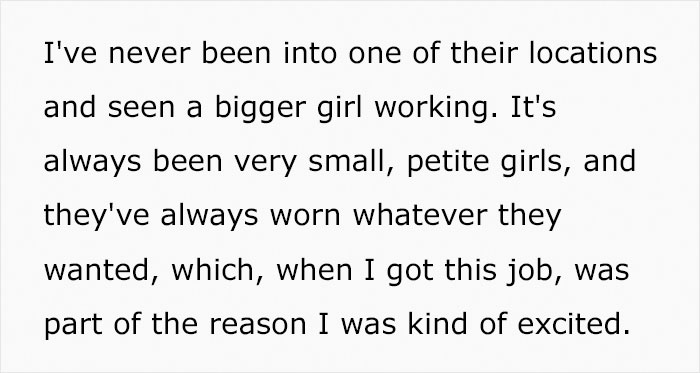

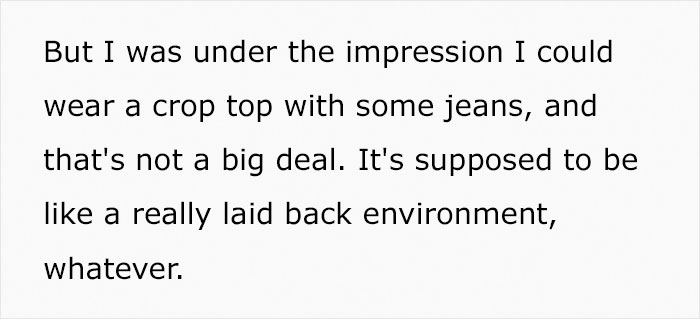
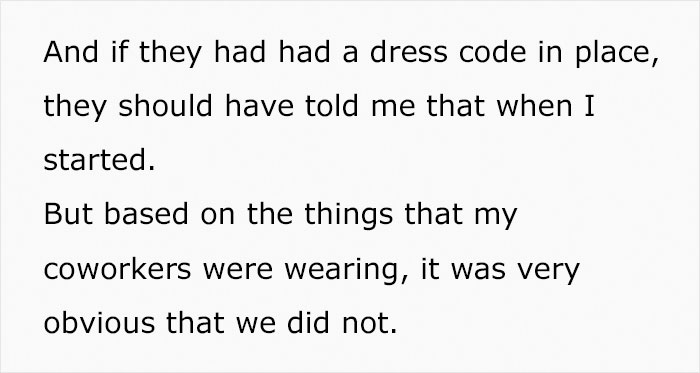
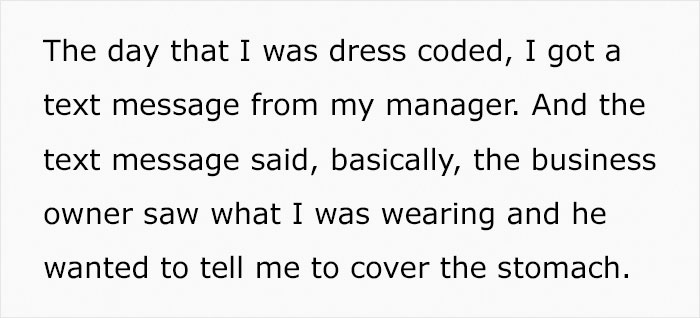
Despite her peers wearing crop tops at work, Abigayle was told by her manager that she needed to cover up
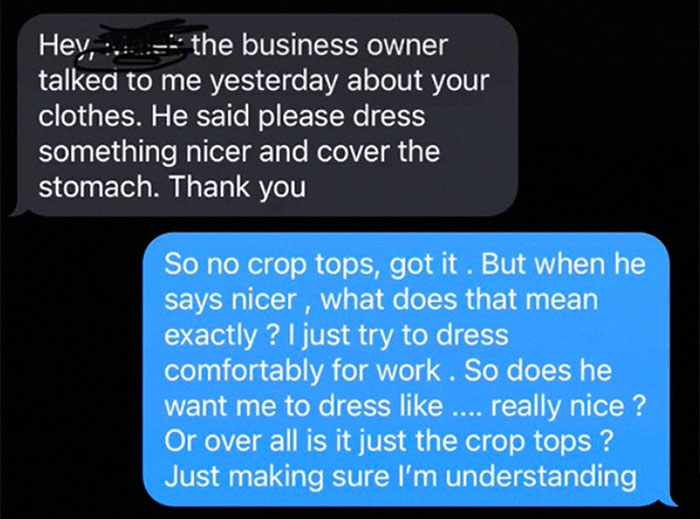
Image credits: abigaylecanterbury

Image credits: abigaylecanterbury

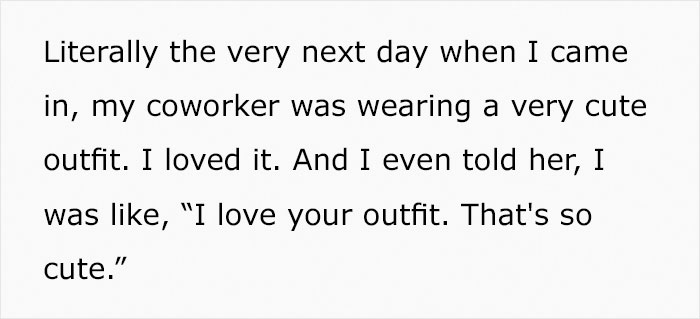
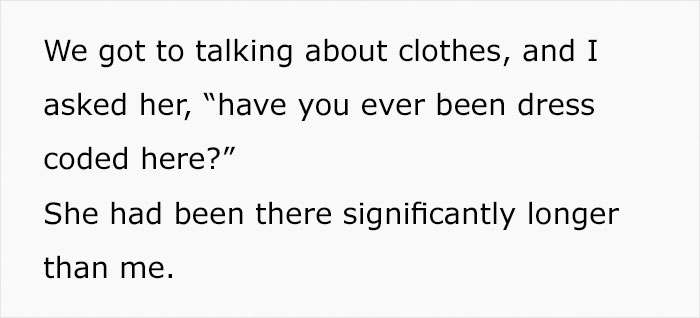
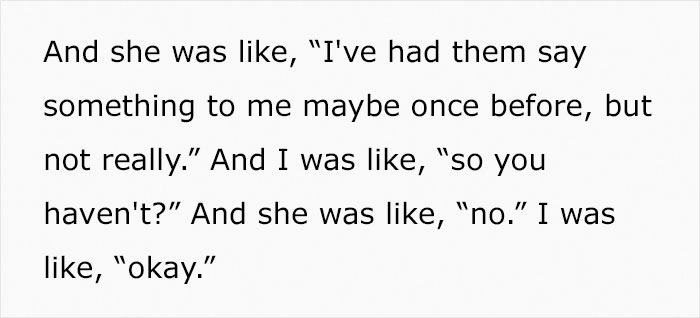
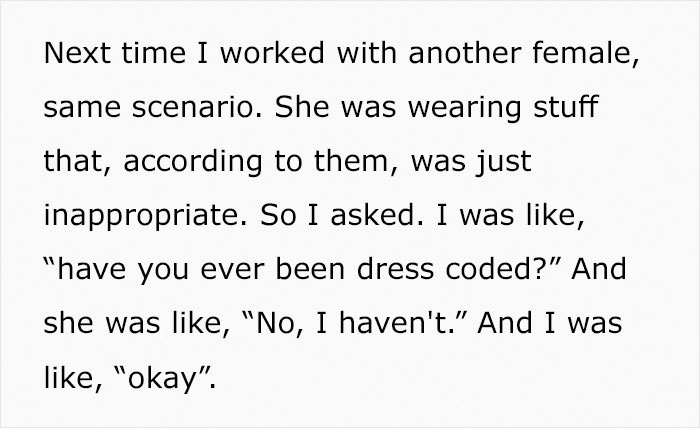
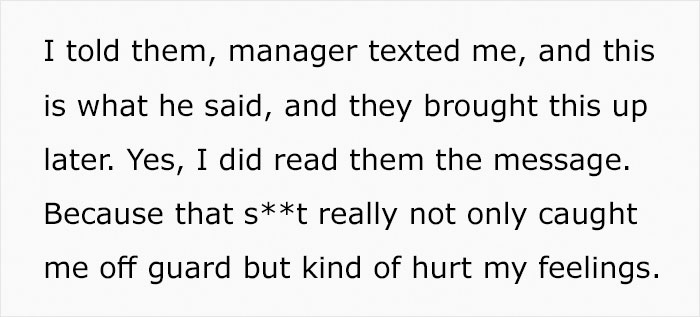
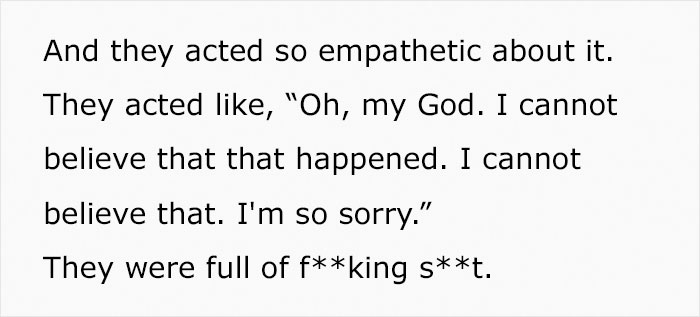
You can hear Abigayle tell the full story right here
It’s no secret that being thin is valued in society, as the media has always shown a blatant preference for smaller bodies. But it’s disheartening to know that even in the workplace, having a larger body can lead to discrimination. In fact, one study published in Science Direct even found that 45% of employers were less likely to recruit obese candidates. This same study also found that “obese people are less likely to be regarded as able leaders and had lower starting salaries”. Why do we allow arbitrary factors like the size of our bodies determine what jobs we qualify for? Weight has absolutely no impact on someone’s intelligence, capability and leadership qualities, yet employers maintain prejudices to the detriment of plus size workers.
In one of Abigayle’s follow-up videos, she showed viewers the “controversial” outfit she had been dress coded for


Image credits: abigaylecanterbury
We reached out to Abigayle on Instagram to hear whether or not any of her co-workers ever acknowledged that she had been treated poorly. Apparently, they were not too concerned, as all they told Abigayle was, “That’s so crazy.” We also asked what the most important thing she’ll look for in her next job is. “Fairness first of all,” Abigayle said. “And either a strict dress code or a dress code with no double standards.”
We then asked if she thinks fatphobia is common in the workplace. “[It is] definitely a very prominent thing in the workplace,” Abigayle says. “It happens so much, and until we start talking about it, nothing will change.” To anyone else who has dealt with similar discrimination, Abigayle says, “Don’t ever settle for a job that can’t give you basic respect. They need employees to run their business, and if they can’t give basic respect to them, why would they hire them in the first place?”
Abigayle even noted what she had been wearing when she was hired

Lastly, Abigayle added, “I really want to thank every single journalist that took the time to listen to what I had to say. Until we start talking about these social issues, they’re never going to be taken seriously. Nobody deserves to feel bad about THEIR body.”
It is important to bring this issue to light to minimize the power of fatphobia. In the United States, Michigan is the only state out of 50, as well as a handful of cities around the nation, that has outlawed discrimination based on weight. Anywhere else in the country, employees can still be fired for being fat. There are activists fighting to increase civil rights protections for overweight individuals, but it’s unfortunately been a slow process. “My body is not a failure, nor does it need to be fixed,” says Janet Conroy-Quirk, an advocate for a bill in Massachusetts that would make weight-based discrimination illegal in the state. “The systemic flaws and fatphobic mentality that allow weight discrimination are the problem.”
Abigayle should have never been made to feel uncomfortable about her body, but I’m glad that she can now find a more positive environment to work in. By starting this conversation, she has taken a small step towards ending fatphobia in the workplace, and hopefully soon enough, no one will have to deal with it. Let us know in the comments how you would have responded to her unprofessional manager, and if you have ever been in a similar situation, we’d love to hear how you reacted.
Many viewers shared Abigayle’s outrage for the situation, agreeing that she had done nothing wrong


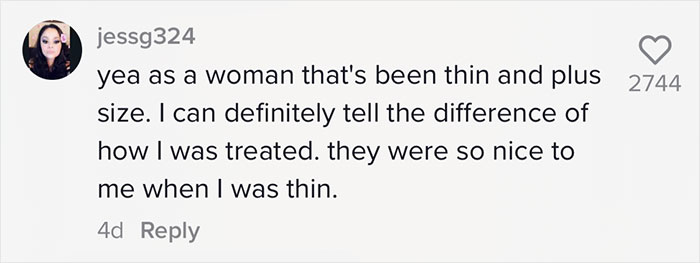

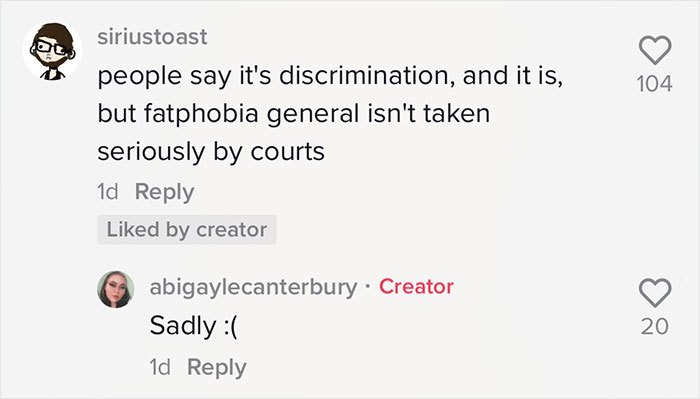
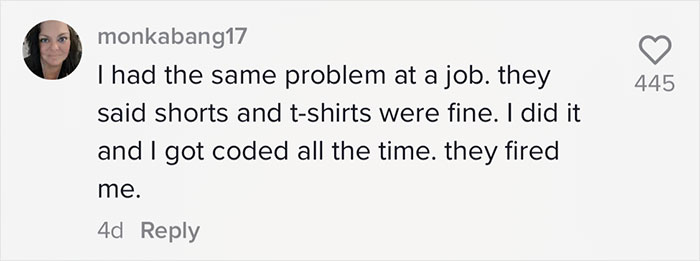
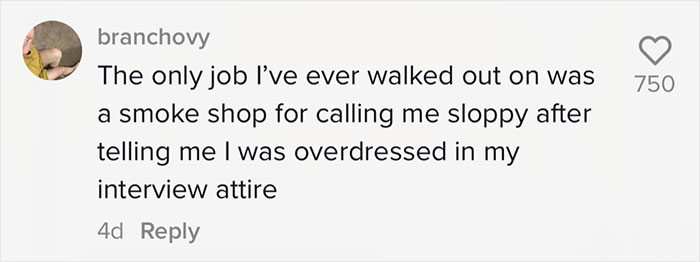
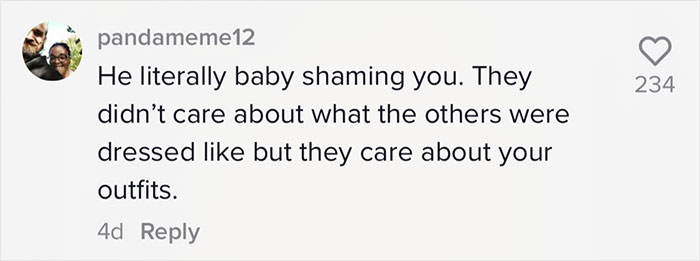
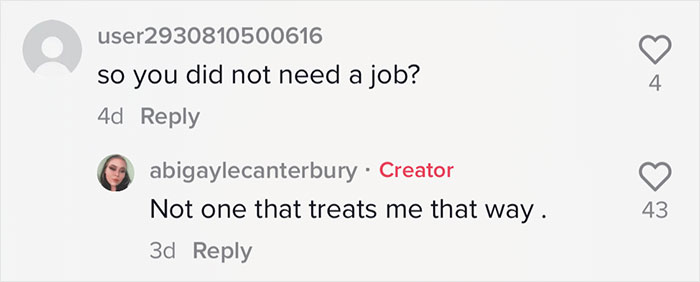
And for the people who felt the need to leave negative comments, Abigail had the perfect reply
 Follow Us
Follow Us





